When I was a preteen, I could not wait until l became a teenager. I was excited when I turned 13 because I thought that I was finally headed to puberty and then to adulthood. It never occurred to me that with puberty that one’s body would go through many changes.

According to my pediatrician, Dr. Elinor Hancock, with Florissant Pediatrics in Florissant, MO, girls mature faster than boys and bodily changes happen even faster. I agree with Dr. Hancock, because when I reached the age 13, my acne began. I was devastated!
According to WebMD, acne or acne vulgaris is a skin problem that starts when oil and dead skin cells clog up your pores. Acne has been called blackheads and whiteheads. WebMD defines blackheads as small, dark spots, about the size of a pinhead; whereas whiteheads are white bumps on the skin that are collections of oil.
Acne.org.au, a website governed by dermatologists and other doctors, states that a blackhead occurs when the opening to the pore is blocked by a dark plug of oil and dead skin cells. Whereas, a whitehead occurs when the opening to the pore is closed off and the hair follicle fills with oil and dead skin cells.
Acne can appear for several reasons, but oily skin is the main source of teen acne. According to KidsHealth.org, during puberty one’s body produces more oils, which combine with bacteria and dead cells that clog one’s pores and causes acne. Even though the oils produced by the body help keep the skin healthy, it could be a bad thing. Oily skin can be a result of heightened hormone levels. The hormones fire up the sebaceous glands—the hair follicles in your skin, also known as oil glands, to make more sebum—and the glands may become uncontrollable. Sebum is oil that basically makes up your hair and skin oily. Your pores can become clogged if there is too much sebum or too many dead skin cells.
WebMD interviewed dermatologists from around the country to find out how they advise patients with oily skin, here’s what they recommend: Cleansing your face in the morning and at night is the most effective way to manage oily skin. You should wash your face with warm water, not hot; extremes of temperature can irritate the skin. But you should never scrub your face; it can irritate the skin and worsen acne, according to WebMD.
April Armstrong, MD, assistant professor of dermatology at the University of California, Davis, says, “Always use a gentle cleanser, since harsh soaps can trigger the skin to increase oil production.”
If a basic facial cleanser doesn’t work, The St. Louis Children Dermatology Clinic and WebMD suggest buying aproduct that includes an acid, such as benzoyl peroxide, salicylic acid or glycolic acid. These chemicals help cut the oiliness in the skin. Benzoyl peroxide helps kills bacteria in your pores and fights future breakouts. The evidence on the effectiveness of this product can be found on the informational pamphlet. However, for more severe cases doctors and or dermatologists can prescribe a special cream that usually contains benzoyl peroxide and is stronger than products without a prescription.
As a result of having acne, I, like most teens, developed poor self esteem, felt embarrassed, ugly, and became tired of all the different medications. Acne does not discriminate because it affects all races of people, adults and even babies.
Personally, I use many medications to fight further acne outbreaks. I have used benzoyl peroxide, Neutrogena face wash, an antibiotic called doxycycline monohydrate, and even the latest or popular acne product, PROACTIV, in which the effective ingredient is salicylic acid.All the above products have worked for me, especially the Neutrogena face wash, benzoyl peroxide and doxycycline monohydrate.
Teenagers often experience depression and become embarrass for having acne, according to Everydayhealth.com. They need good support systems, because their emotional state due to the stress of acne. It’s a tough thing to go through, but help is available at any doctor or dermatologist office. Sydney Ojeikere

This work is licensed under a Creative Commons Attribution-NonCommercial-NoDerivs 3.0 Unported License


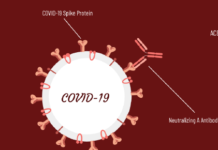
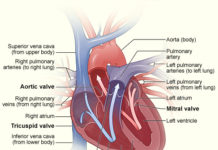
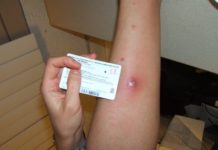
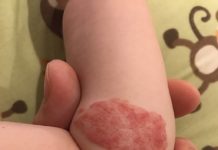
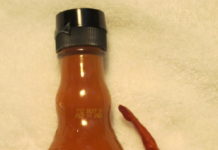
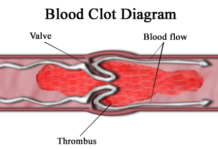






I had really bad acne as a teenager, and it lasted until my junior or senior year of high school. I remember one time I had really bad acne, and I actually stayed home because of I was so embarrassed! Those were frustrating times.
Anyhow, well done on this article. It’s such a relevant topic and it’s so important for teens to understand that acne, while it can be managed as you mentioned, is just part of being a teen. I hope lots of your peers get to read this article!
Very good article! This article will be helpful for teens because as a teen myself, i’ve had my share of bad acne. I think teens will take a lot of information from this article.
sorry about your ance problem.. i feel ya
instresting topic! now i know ways to prevent and manage acn;considering the fact that i am still a teen and will continue to get acne.
I dont have a lot of acne, l only get a few pimples here and there. I do have a different skin conditon though, I forgot what its called, but it makes my face breakout in red patches. I hope yours gets better!
Very interesting read with lots of helpful information. I’ve never really had any bad acne myself, and when I do I usually treat it with herbal remedies from home.
I agree I think many teens go through acne and should take your advice on medicines